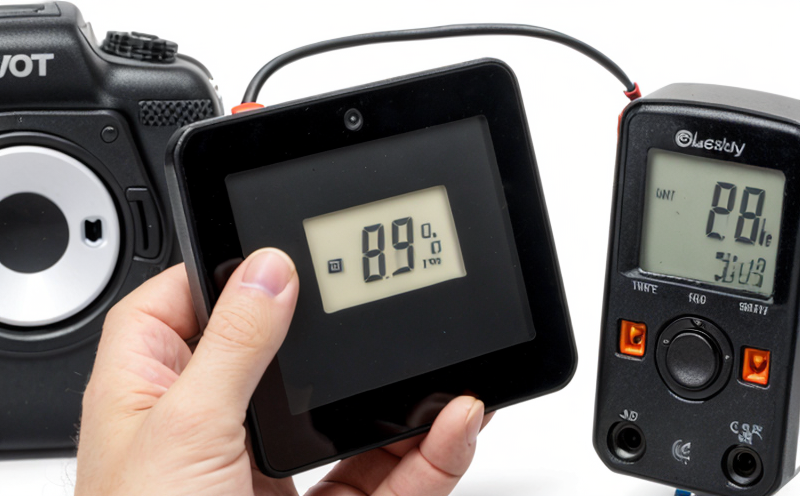UL Certification Testing in Consumer Electronics
UL (Underwriters Laboratories) certification is a symbol of trust and safety that signifies a product has met rigorous standards set by UL. For consumer electronics, this certification ensures the products are safe for use, meet regulatory requirements, and are reliable. This service plays a crucial role in maintaining public safety and fostering consumer confidence.
UL certification testing involves a comprehensive evaluation process that includes but is not limited to electrical safety checks, thermal analysis, mechanical strength tests, and durability assessments. The primary goal is to ensure that the product operates safely under all expected conditions, including accidental overloading or abuse.
The test parameters for UL certification in consumer electronics are stringent and cover a wide range of potential risks. These include but are not limited to:
- Electrical safety checks to prevent short circuits, overheating, and other electrical hazards.
- Thermal analysis to determine the maximum operating temperature without risk of fire or explosion.
- Mechanical strength tests to ensure that components can withstand typical use without failure.
- Durability assessments to evaluate how long a product will function properly under normal conditions.
Before undergoing UL certification, it is essential for manufacturers to prepare specimens according to the relevant standards. This involves selecting representative samples of each product variant and ensuring they are in their final form before testing begins. The instrumentation used during these tests includes advanced electrical measurement equipment, thermal imaging cameras, and mechanical testers capable of simulating real-world stresses.
The UL certification process is detailed and rigorous, involving multiple stages such as initial assessment, sample preparation, laboratory testing, and finally, the issuance of a certificate if all criteria are met. Compliance officers within organizations play a vital role in managing this process to ensure timely submission of products for certification.
International acceptance and recognition of UL certification add significant value beyond mere compliance with local regulations. It helps manufacturers penetrate global markets where safety standards vary widely but UL certification serves as a common benchmark across different regions. This is especially important for consumer electronics which are frequently traded internationally.
International Acceptance and Recognition
UL certification enjoys widespread acceptance globally, recognized by governments, regulatory bodies, and consumers alike. Many countries accept UL certification as a valid means of compliance with their own national standards. This recognition extends to various regions including North America, Europe, Asia-Pacific, and other parts of the world.
In North America, particularly in the United States and Canada, UL certification is mandatory for certain categories of consumer electronics such as appliances, power tools, and lighting fixtures. It ensures that these products meet stringent safety requirements set by local authorities.
European Union regulations often reference UL standards, allowing manufacturers to streamline their compliance processes across different member states without redundant testing.
In Asia-Pacific region countries like China, Japan, and South Korea, UL certification can expedite market entry for consumer electronics. It is also recognized by regulatory bodies in India and other emerging markets where demand for high-quality products is growing rapidly.
The global acceptance of UL certification reflects its commitment to setting industry-leading safety standards that transcend national boundaries. This makes it an ideal choice for manufacturers aiming to expand their product lines into international markets while maintaining a consistent level of quality and safety.
Environmental and Sustainability Contributions
UL certification extends beyond just electrical safety; it also promotes environmental responsibility through its lifecycle approach. By ensuring products are safe during use, UL helps reduce the risk of accidents that could lead to waste generation or pollution incidents. Additionally, by focusing on durability and longevity, UL encourages sustainable practices within manufacturing processes.
Incorporating environmental considerations into certification criteria aligns with broader trends towards greener business operations worldwide. Manufacturers seeking UL certification must demonstrate compliance not only with traditional safety norms but also with increasingly stringent environmental regulations wherever they operate.
Use Cases and Application Examples
UL certification testing is applicable to a broad spectrum of consumer electronics ranging from smartphones and tablets to home appliances like washing machines and air conditioners. Here are some specific use cases:
Smartphones: Ensuring battery safety, preventing overheating during charging or usage.
Tablets: Testing for shock resistance when dropped accidentally.
Home Appliances: Evaluating the efficiency of energy consumption and ensuring proper venting systems to avoid fire risks.
These tests help identify potential hazards early in the development cycle, allowing manufacturers to make necessary improvements before product launch. This proactive approach not only enhances consumer safety but also builds brand reputation by demonstrating a commitment to excellence.





